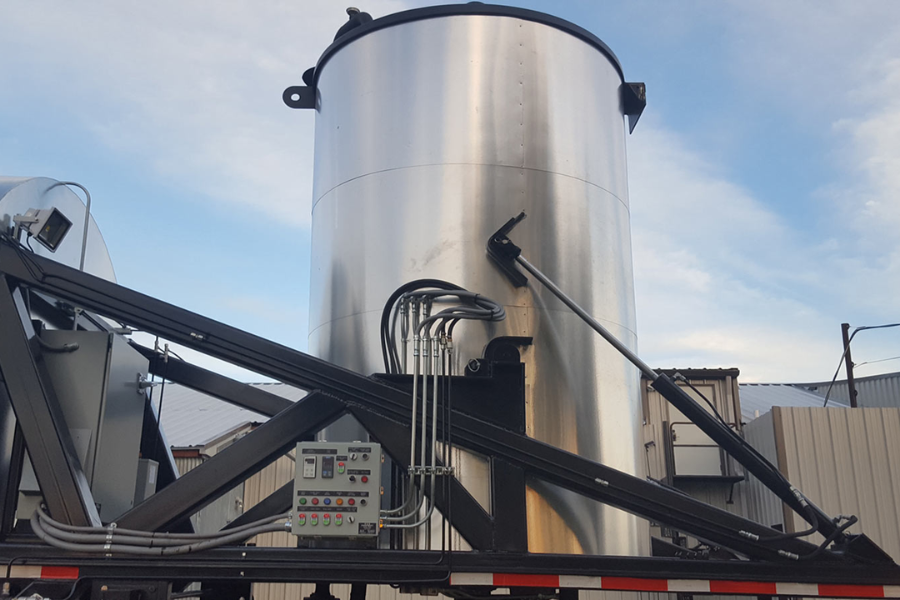In the world of road construction, ensuring that asphalt is both long-lasting and resilient is essential for the safety and efficiency of transportation networks. One of the most groundbreaking innovations in asphalt technology is the use of bitumen boosters. These additives have been proven to significantly enhance asphalt’s performance, especially in critical areas such as preventing rutting and extending its lifespan. This article dives deep into what bitumen boosters are, how they function, and their impact on the overall performance and durability of asphalt.
What Are Bitumen Boosters?
Bitumen boosters are specialized additives designed to improve the fundamental qualities of bitumen, the binding agent in asphalt. Bitumen is a thick, dark substance extracted from petroleum that holds together the mix of aggregates like sand, gravel, and crushed stone in asphalt. However, on its own, bitumen has limitations, particularly in terms of performance under extreme conditions.
To counter these challenges, bitumen boosters are introduced to enhance the physical and chemical properties of bitumen, addressing issues such as cracking, aging, and rutting. These boosters can improve asphalt’s elasticity, flexibility, and resistance, making it more durable and adaptable to harsh conditions.
How Do Bitumen Boosters Enhance Asphalt?
Bitumen boosters achieve their effects through a variety of processes. Their primary function is to modify the properties of bitumen, thus enhancing the overall quality and performance of the asphalt mix.
1. Chemical Modifications
Bitumen boosters typically contain certain chemicals that alter the characteristics of the bitumen binder. These modifications can lead to improved viscosity, elasticity, and adhesion, resulting in stronger, more flexible asphalt.
Examples of Key Chemical Additives:
- Polymers: Additives like Styrene-Butadiene-Styrene (SBS) and Ethylene-Vinyl-Acetate (EVA) are commonly used to improve bitumen’s flexibility. These polymers reduce cracking and deformation under varying temperatures.
- Plasticizers: These agents help adjust the flow of bitumen, ensuring it remains workable and easy to apply during the mixing and paving process.
2. Physical Enhancements
In addition to chemical enhancements, bitumen boosters also improve the physical properties of asphalt.
- Rheological Properties: Bitumen boosters modify the flow behavior of the binder, enhancing its ability to resist deformation, especially under high temperatures and heavy traffic.
- Viscoelastic Behavior: These boosters improve bitumen’s ability to recover from stress, reducing permanent deformation like rutting and increasing the service life of asphalt.
3. Seamless Integration
Bitumen boosters are designed to mix smoothly with existing asphalt compositions. During the manufacturing phase, the booster blends evenly with the bitumen, ensuring consistent distribution throughout the asphalt mixture.
Key Benefits of Using Bitumen Boosters
Bitumen boosters are not just about enhancing performance; they offer numerous advantages that contribute to the longevity, workability, and cost-efficiency of asphalt surfaces.
1. Improved Resistance to Rutting
Rutting, which occurs when grooves form in the asphalt due to traffic loads, is one of the most common issues faced by road surfaces. Bitumen boosters enhance the asphalt’s ability to resist deformation, helping preserve the integrity of the road surface.
Impact of Bitumen Boosters on Rutting:
- Reduced Deformation: The additives help asphalt maintain a smooth, even surface by reducing permanent deformation caused by repeated traffic.
- Extended Pavement Life: By mitigating rutting, bitumen boosters play a key role in lengthening the life of asphalt surfaces, leading to fewer repairs and lower maintenance costs.
2. Increased Durability and Flexibility
Bitumen boosters significantly increase the durability and flexibility of asphalt, making it better suited to withstand the elements.
- Crack Resistance: With enhanced elasticity, asphalt is less prone to cracking due to temperature changes or heavy loads.
- Better Aging Resistance: These boosters slow down the aging process of bitumen, reducing its tendency to become brittle and lose its original strength.
3. Enhanced Workability
Bitumen boosters improve the ease with which bitumen can be handled and applied.
- Improved Flow: The enhanced properties of the boosted bitumen make it easier to mix, transport, and apply during construction projects.
- Uniform Mixing: By promoting better integration with aggregate materials, bitumen boosters contribute to a more uniform asphalt mixture, improving the overall quality of the surface.
4. Cost Efficiency
Although adding bitumen boosters may increase initial project costs, they provide substantial long-term savings by reducing the need for maintenance and repairs.
- Lower Maintenance Costs: Boosted asphalt surfaces require less frequent repair, significantly lowering lifecycle costs.
- Long-Term Value: The extended lifespan of the asphalt translates into better returns on road construction investments.
Applications of Bitumen Boosters
Bitumen boosters are used across various sectors within the road construction and maintenance industries. Their benefits extend beyond new road constructions to include repair and maintenance applications.
1. New Road Construction
For roads subjected to high traffic loads, bitumen boosters are integral in ensuring that asphalt remains durable and resistant to rutting and deformation. They are especially valuable in projects like highway construction, where longevity and smoothness are essential.
2. Pavement Maintenance and Rehabilitation
Bitumen boosters can also be used to improve existing road surfaces, particularly during resurfacing and repairs.
- Surface Treatments: These boosters rejuvenate aging roads, improving their flexibility and resistance to further wear.
- Repair Works: Bitumen boosters enhance the quality of patching materials, leading to more durable and lasting repairs.
3. Specialized Applications
In specialized areas such as cold mix or warm mix asphalt, bitumen boosters are particularly useful in optimizing the performance of asphalt at lower working temperatures.
Selecting the Right Bitumen Booster
When choosing the ideal bitumen booster for a project, several factors must be taken into account:
- Type of Booster: Ensure that the booster aligns with project needs, whether it is a polymer-based additive for flexibility or a chemical additive for viscosity and aging resistance.
- Compatibility: Confirm that the booster integrates seamlessly with existing bitumen and aggregate materials.
- Environmental Considerations: Choose boosters that meet sustainability standards and minimize environmental impact.
- Cost-Benefit Analysis: Evaluate the potential long-term savings in maintenance and repairs against the initial cost of the booster.
Case Studies: Real-World Successes
Several projects illustrate the effectiveness of bitumen boosters in enhancing asphalt performance:
- Urban Roadways: In a busy city, bitumen boosters significantly reduced rutting and wear in high-traffic urban roads, resulting in extended service life and reduced maintenance costs.
- Highway Projects: The use of bitumen boosters in a highway project led to improved durability, resistance to cracking, and smoother driving conditions, which reduced maintenance and repair needs.
- Pavement Rehabilitation: During a pavement rehabilitation initiative, bitumen boosters rejuvenated the surface, enhancing flexibility and extending the asphalt’s performance lifespan.
Conclusion
Bitumen boosters are transforming the road construction and maintenance industries by improving the strength, longevity, and performance of asphalt. These additives tackle common issues such as rutting, cracking, and aging, ultimately contributing to smoother, more durable road surfaces.
By understanding their benefits, applications, and selection criteria, professionals can make informed decisions to ensure high-quality asphalt performance, providing long-lasting and cost-effective solutions for infrastructure projects.
Explore the Latest Trends and Insights in Business at forbesmaga.











Leave a Reply